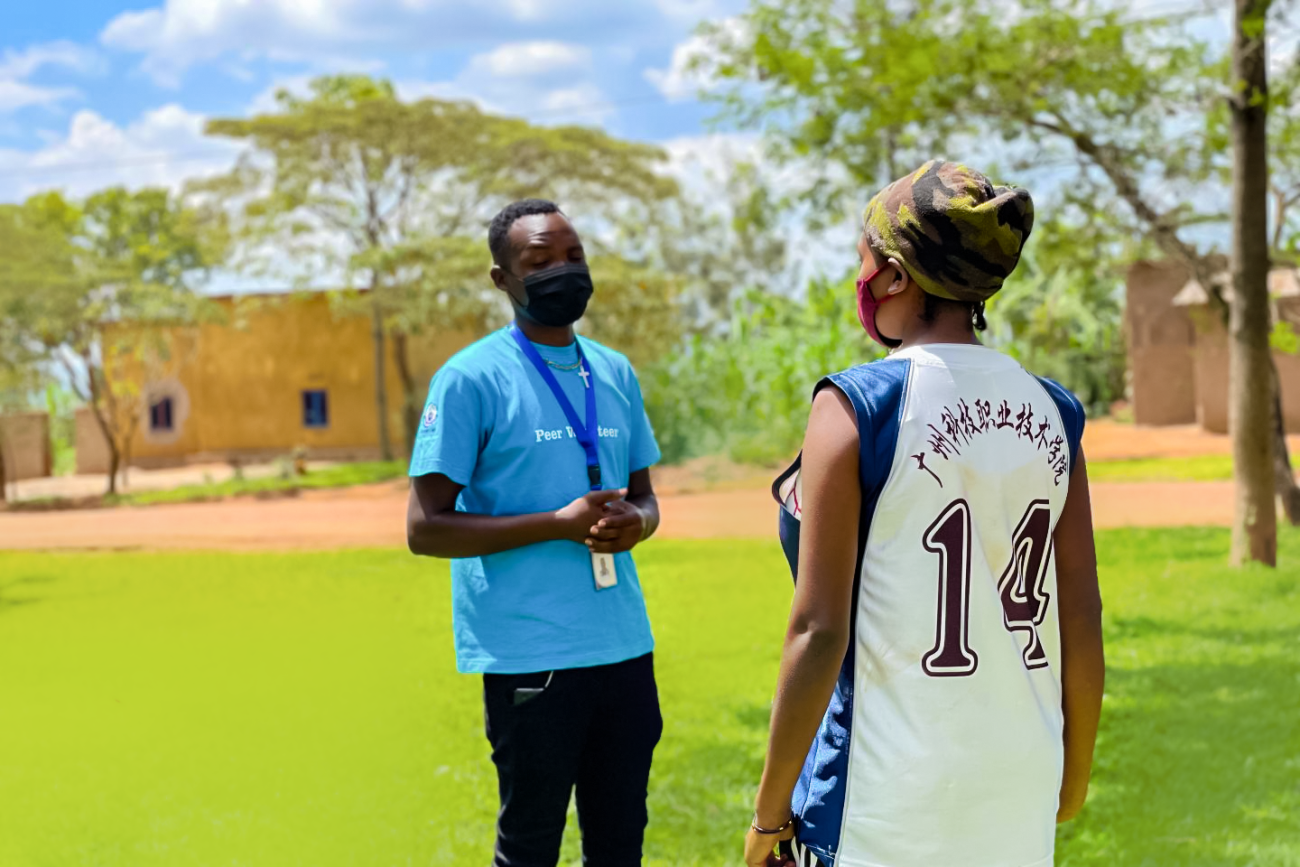UNICEF is helping youth in Rwanda to gain awareness on reproductive health to become responsible and mature adolescents
GATSIBO, EASTERN RWANDA – Rita became pregnant at the tender age of 18 years old and face a lot of challenges. She had to drop out of school to deal with pregnancy and raise the baby alone as the father had abandoned her. At the moment when she was confused about life, she met the peer volunteer in her community, Gilbert Ntigurirwa.
In 2020, UNICEF partnered with Society for Family Health (SFH) Rwanda to improve access to HIV services among young people aged 15-24 years in Gatsibo district. The project, called UBUZIMA BWIZA, ISHEMA RYANJYE, aims to reduce the rate of new HIV infections and pregnancies among girls and young women through peer education on reproductive health. Through peer volunteer support, youth in Rwanda gain more knowledge and confidence in addressing their needs for sexual and reproductive health and HIV prevention. In 2021, over 50,000 youths were reached with HIV prevention and gender-based violence messages. About 16,000 youths received HIV testing and counseling and roughly 50,000 condoms were distributed for free through HIV outreach activities.
“Peer volunteers taught me to love myself and become a stronger person for me and my daughter,” Rita says,
“I actively participate in these programs and even took my younger sister to the youth corner. My only wish is that what happened to me never happens to my family and friends,” she concludes.


